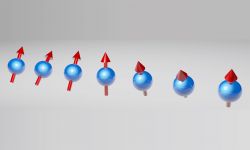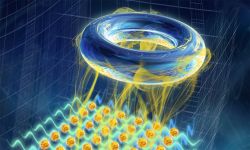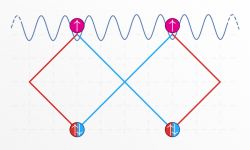
An international team of researchers led by Christian Roos and Andrea Alberti has proposed a new way to make atoms or ions indistinguishable by swapping their positions. These particles are then expected to exhibit exotic properties.
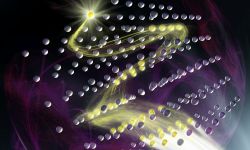
In quantum computing, dense atomic clouds can efficiently map “flying” photonic qubits onto stationary qubits. The absorbed photons, however, end up encoded in delocalized atomic excitations which impede local processing. A Team of researchers from Innsbruck, Oxford, Singapore and Harvard came up with a new concept – a so-called “Quantum Spin Lens” – which could focus delocalized excitations onto single atoms. This would allow the manipulation and processing of “flying” qubits using the well-developed quantum computing toolbox.
Read more …From Optical to Quantum Lenses – a Novel Light-Matter Interface
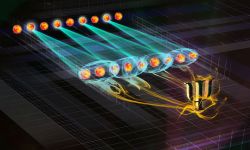
Physicists are developing quantum simulators, to help solve problems that are beyond the reach of conventional computers. However, they first need new tools to ensure that the simulators work properly. Innsbruck researchers around Rainer Blatt and Christian Roos, together with researchers from the Universities of Ulm and Strathclyde, have now implemented a new technique in the laboratory that can be used to efficiently characterize the complex states of quantum simulators.
